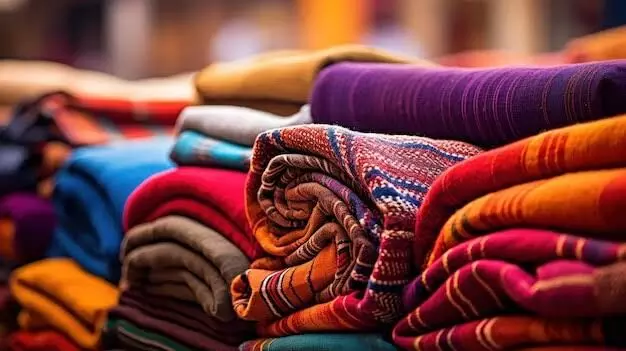'Paragamanjari' : Osmania University, Hyderabad unveils new art form that can revolutionize textile design
The intricate designs of pollen grains, which range from 10-100 µm, have been used as motifs in textile design
By Newsmeter Network
Representational Image.
Hyderabad: Osmania University has introduced `Paragamanjari’, an art form inspired by pollen morphology.
The intricate designs of pollen grains, which range from 10-100 µm, have been used as motifs in textile design, resulting in a new category of fabric art.
New Art Form Inspired by Pollen Morphology
The name Paragamanjari is derived from Sanskrit, with Paraga meaning pollen and Manjari translating to design.
This innovation was created by Dr. Allam Vijaya Bhasker Reddy, Assistant Professor in the Department of Botany, along with M.Sc. student Shivani Netha. Together, they combined botanical elements with textile design to create an entirely new perspective in fabric art. Netha’s project work formed the basis of this unique concept.
Blending Science and Art in Textile Design
Dr. Reddy explained the significance of the new art form: “Pollen grains have highly ornamental structures that are microscopic yet immensely beautiful. By bringing these natural designs into textiles, we’ve opened up a new avenue of artistic expression."
This approach, inspired by pollen morphology, marks the first time microscopic natural elements have been incorporated into textile design. It represents a synergy between the scientific study of pollen (palynology) and the creative possibilities within the textile industry.
Patent Submission and Future Impact
The creators have submitted Paragamanjari for patent protection, and once approved, the new concept is expected to influence both the textile and design sectors. “We anticipate that this design philosophy will join the ranks of India’s famous textile traditions like Kalamkari and Uppada,” said Dr. Reddy.
Potential for Thousands of Designs
Paragamanjari offers immense potential for design diversity, with thousands of patterns waiting to be explored. The project has also opened doors for the inclusion of this concept in future textile technology curricula, further integrating science into the world of creative design.